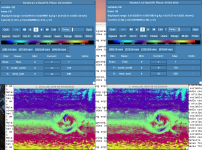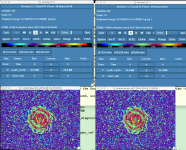Hello,
I've been doing idealized hurricane simulations with both WRF3.4.1 and WRF 3.9.1.1.
Recently I've found that the output from restarts is not coming out identical to the original run. The results are identical when re-run from the initial conditions, but not from restart. This is true for both 3.4.1 and 3.9.1.1.
I actually had this problem before about 7 years ago, but then I got it fixed and then I had many runs with WRF3.4.1 that were repeated correctly.
One difference now is that these are idealized runs, with no wrfbdy files. The namelist is attached.
I'm running on 512 Intel processors using ifort (dm).
If anyone has had a similar experience, and/or solutions, please let me know!
Dave Nolan
I've been doing idealized hurricane simulations with both WRF3.4.1 and WRF 3.9.1.1.
Recently I've found that the output from restarts is not coming out identical to the original run. The results are identical when re-run from the initial conditions, but not from restart. This is true for both 3.4.1 and 3.9.1.1.
I actually had this problem before about 7 years ago, but then I got it fixed and then I had many runs with WRF3.4.1 that were repeated correctly.
One difference now is that these are idealized runs, with no wrfbdy files. The namelist is attached.
I'm running on 512 Intel processors using ifort (dm).
If anyone has had a similar experience, and/or solutions, please let me know!
Dave Nolan


